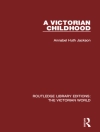As essential components of globalization, the study of practices and processes of space formation promotes a nuanced understanding of globalization. How do people create spaces for social action under the global condition, especially since the nineteenth century, when global interconnectedness increased rapidly? We explore the problem through specific case studies. Anthropologists, historians, geographers, sociologists, global studies scholars, and cultural studies scholars examine the agency of, e.g., members and staff of African regional organizations, Indian migrant workers, female GDR activists, Soviet planning experts, or US novelists. By studying elites as well as middle-class and micro-entrepreneurs – i.e. more and less influential actors – we encourage reflection on the relationship between power and space and examine how spatial entrepreneurs attempt to influence the shaping of space and their spatial literacy. The analysis aims at a better understanding of the different globalization projects, their crisis-like clashes, and the resulting conflictual development of spatial orders.
Sobre el autor
Steffi Marung, Universität Leipzig; Ursula Rao, Max Planck Institut für ethnologische Forschung, Halle/ Saale, Deutschland.












